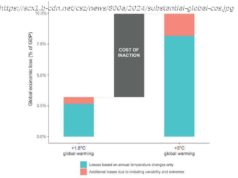The European Commission has fined Google $2.7 billion, but that won’t hurt the search giant.
Europe is once again mad at Google, but this time European regulators’ angst comes with a serious price tag: a €2.42 billion, or about $2.73 billion, fine to punish the Alphabet, Inc. (GOOG, GOOGL) , subsidiary for pushing its product-search tool in its own search results.
“Google abused its market dominance as a search engine by promoting its own comparison shopping service in its search results, and demoting those of competitors” European Commission member Margrethe Vestager said in a statement Tuesday morning announcing the EC’s ruling .
Google general counsel Kent Walker wrote in a blog post that the EU didn’ t understand how product search now transcends traditional web queries, citing Amazon (AMZN) in particular as “a formidable competitor.” He said Google would continue to make its case in Europe.
In a filing with the Securities and Exchange Commission, however, the company predicted that it will pay the fine by the middle of the year. It shouldn’ t feel much pain, with $18.1 billion in cash and cash equivalents on its books at the end of March. And with no prospect of a comparable penalty from the U. S., stateside searches probably won’ t look any different anytime soon.
The EC’s complaint centers on a relatively small part of Google’s search: the illustrated ads you’ ll see atop some product-centric search results. Type “Washington Nationals cap, ” for instance, and Google will display a strip of listings for stores selling hats with the logo of D. C.’s baseball team.
Other search sites may also help you comparison shop, but they appear far lower in Google’s results. I saw none in several pages of results in my search for a Nats cap.
The EC heard a version of this complaint eight years ago, when a British shopping-search engine called Foundem asked for an investigation into Google’s promotion of its own Product Search.
Google Product Search was unavailable for comment on the EC’s new ruling: In 2012, Google scrapped that attempt at building a comprehensive indexing of items for sale in favor of simply selling ads atop some results. The EU complaint treats the two as basically the same thing.
This is not the first time the wheels of justice have turned slowly in Europe. See also: Europe requiring Microsoft (MSFT) to add a “browser ballot” interface to Windows in 2009, years after Mozilla Firefox had fractured Internet Explorer’s near monopoly.
Meanwhile, Europeans have kept on using Google at even higher rates than U. S. users.
According to StatCounter, Google’s share of all searches stands at 91.9% in Europe, versus 87.7% in the U. S. In mobile search, where Google’s lead is still larger, Europeans direct 97.7% of their queries to Google while Americans “only” use it for 96.3% of theirs.
Unlike Microsoft’s past attempts to stop computer manufacturers from installing other browsers and impede setting IE alternatives as a default browser, it’s harder to see coercion behind that overwhelming market share.
On my own Android phone, it takes six touches of the screen to change its default search site: Open Chrome, tap the menu button, scroll down, select Settings, tap “Search engine, ” pick one of four non-Google options, two owned by Yahoo Finance’s parent firm Verizon (VZ) .
It’s even easier to go directly to another site or app.
“Around half of searches for products now start on specific e-commerce sites or apps, especially Amazon in the countries where it operates, ” emailed Jackdaw Research principal Jan Dawson.
If European users sometimes don’ t want to waste time tapping around to look up the price of something, is it wrong for Google to sell ads against that curiosity?
“Next up: EU to decide a search engine offering news, image & local search is somehow a violation of being a ‘fair’ search engine, ” Danny Sullivan, founder of the trade-news site Search Engine Land tweeted .
Many industry observers do worry about how much Google dominates the online ad business, with Facebook (FB) close behind. But the EC’s action doesn’ t speak to that.
Dawson doubts that the EC ruling would revive the market for non-Google product-search tools.
“Although those comparison shopping sites still exist, they’ re far less relevant today, and even a change to Google’s search engine isn’ t going to turn that around.”






